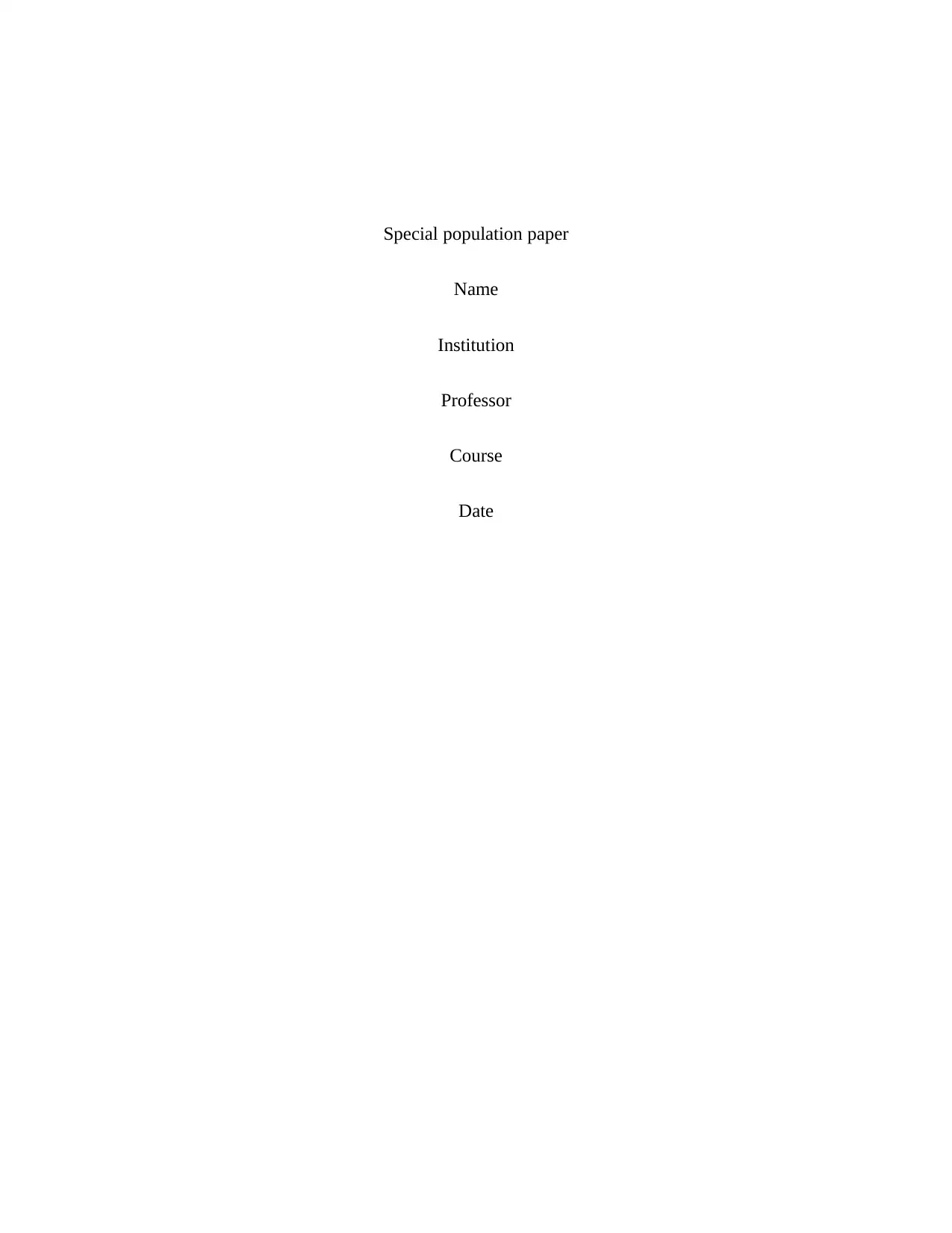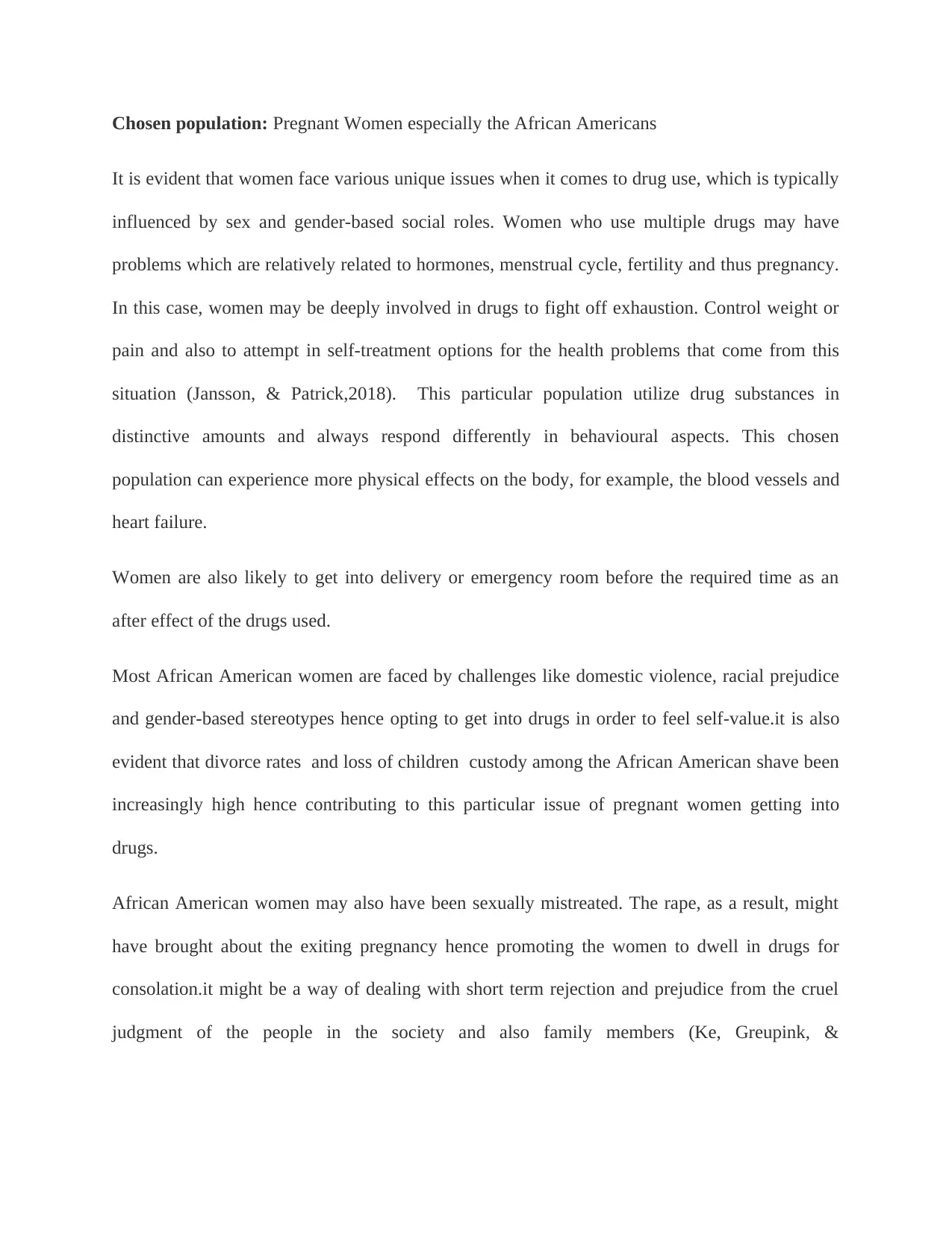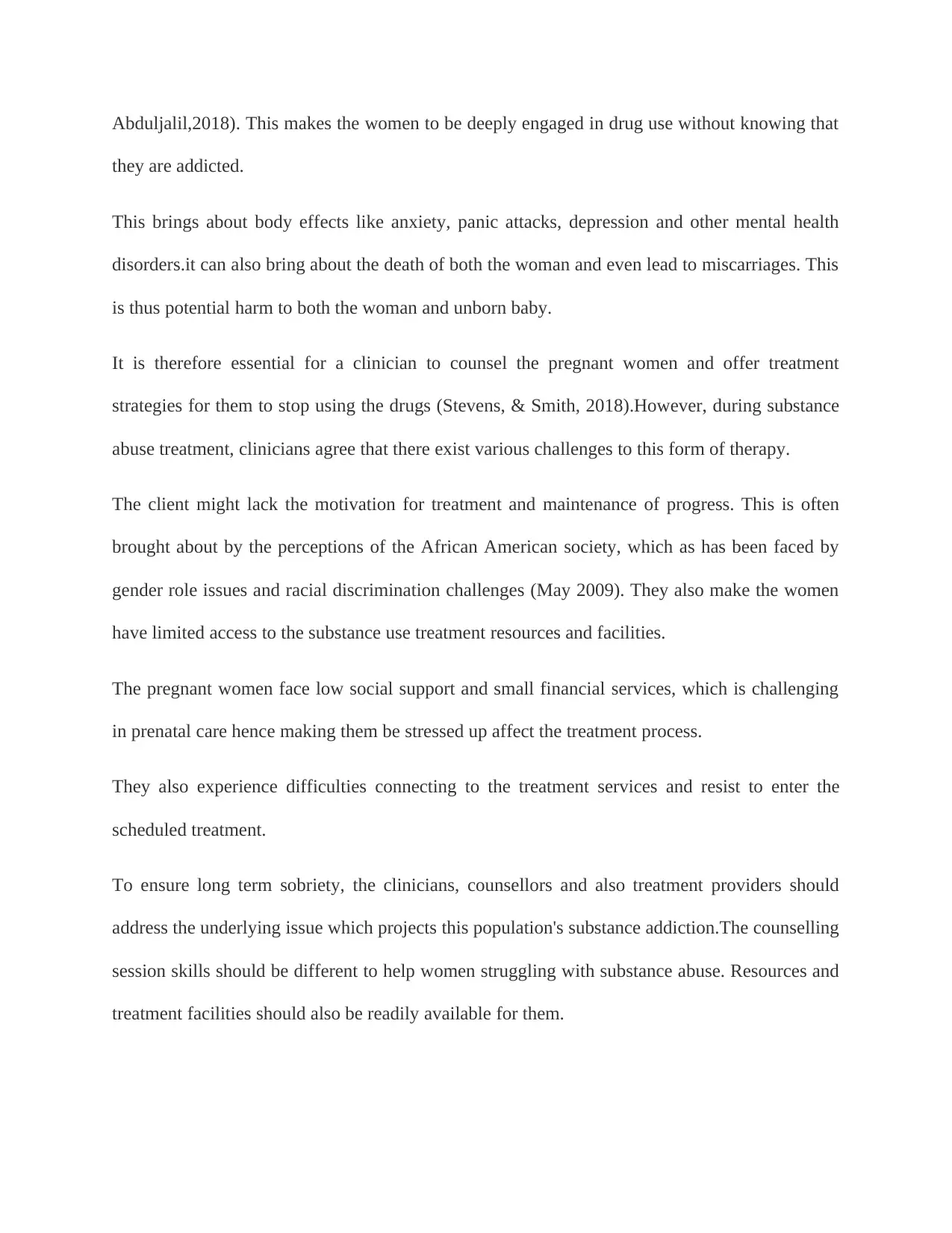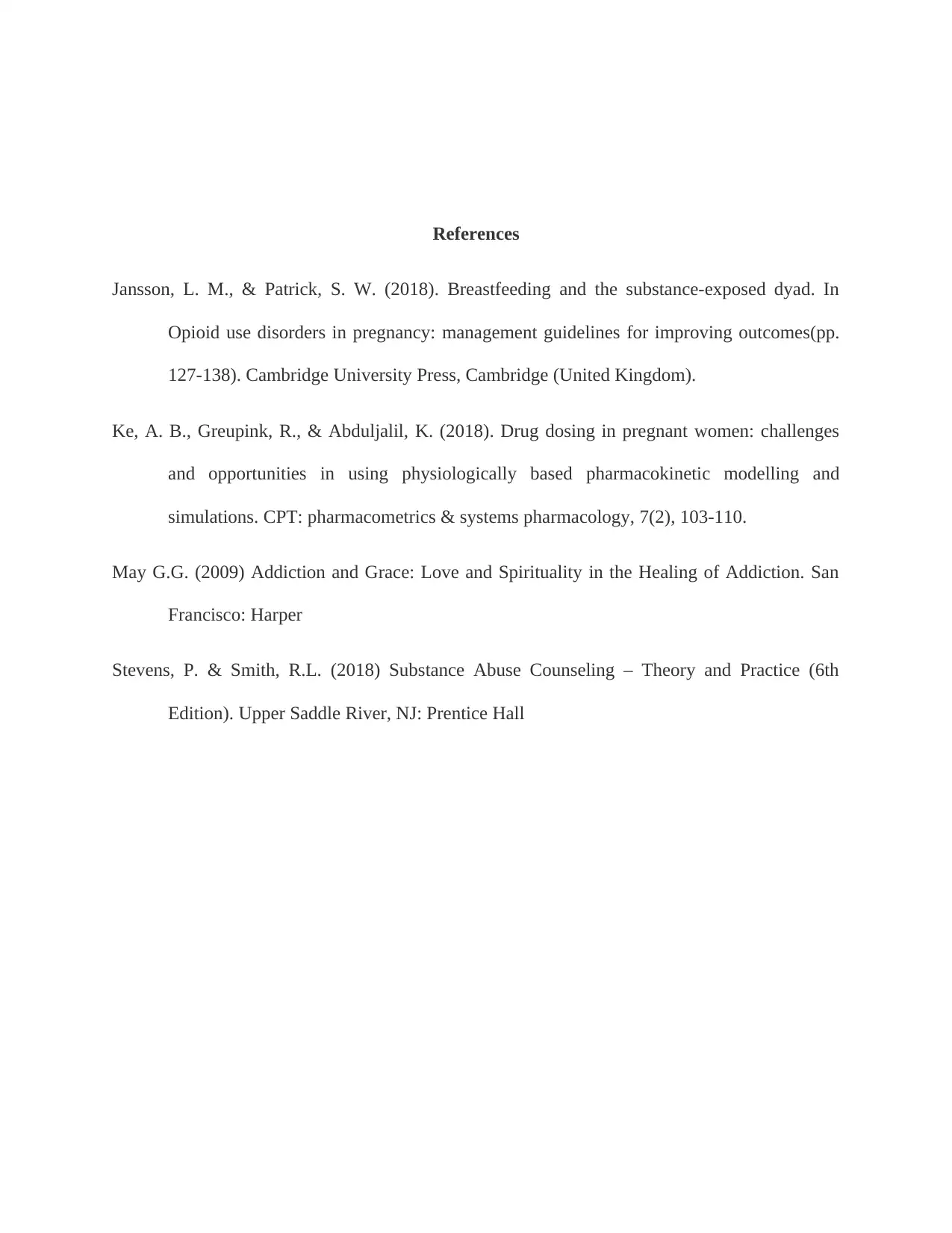Special Population: Drug Use in Pregnant African American Women
VerifiedAdded on 2023/03/17
|4
|730
|98
Report
AI Summary
This report addresses the critical public health issue of drug use among pregnant women, with a specific focus on the challenges faced by African American women. It highlights the unique vulnerabilities of this population, including the influence of sex and gender-based social roles, hormonal changes, and the impact of social factors such as domestic violence, racial prejudice, and gender-based stereotypes. The report explores the physical and mental health effects of substance abuse during pregnancy, including potential complications for both the mother and the unborn child. It also examines the barriers to treatment, such as lack of motivation, limited access to resources, and low social support. The report emphasizes the importance of tailored counseling sessions and readily available treatment facilities to address the underlying issues contributing to substance addiction and ensure long-term sobriety. References from Jansson, Ke, and Stevens are included to support the analysis.
1 out of 4









![[object Object]](/_next/static/media/star-bottom.7253800d.svg)